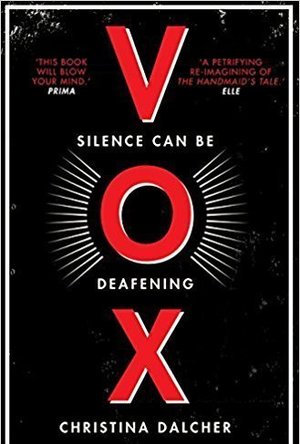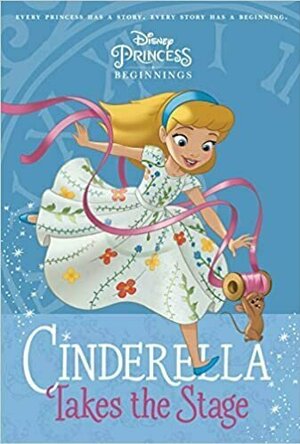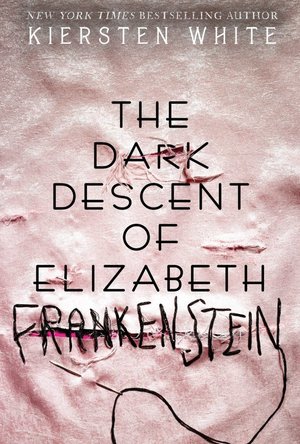Search
Ross (3284 KP) rated Just Mercy (2019) in Movies
Jun 15, 2020
Superb legal drama
A very topical film at the moment, telling the true story of a man ending up on death row after a dubious murder trial with negligible evidence weighed up against copious amounts of evidence of his innocence. As usual, it is the story of the police and DA being under pressure to convict someone of the crime and finding an easy target.
Jordan plays young lawyer Bryan Stevenson who moves to Alabama to fight for justice for death row convicts. Among many cases he meets Jonny D (Foxx), who initially refuses to fight any more despite the paper-thin conviction he received. Persuaded, the pair start their fight against the system, met time and time again with prejudice, injustice and an unfair system that is unwilling to review past cases.
The irony of this unfolding in the town that is so proud to have been where Harper Lee wrote To Kill a Mockingbird, the story of a black man facing an unfair trial accused of crime against a young white female, was not lost on me. This wasn't made much of in the film, I would guess out of respect for the family of the actual murder victim here, and not wanting to suggest a parallel with the false crime in the book.
The film does well to portray the racial injustice, unbalanced legal system and prejudice experienced by the authorities and smalltown America, but not overdo it. This leaves the viewer to mull it on their own, which is especially important to do in the current climate.
An excellent film that gets the balance right between story, faithfulness to the facts and sewing thoughts and parallels with modern day life.
Jordan plays young lawyer Bryan Stevenson who moves to Alabama to fight for justice for death row convicts. Among many cases he meets Jonny D (Foxx), who initially refuses to fight any more despite the paper-thin conviction he received. Persuaded, the pair start their fight against the system, met time and time again with prejudice, injustice and an unfair system that is unwilling to review past cases.
The irony of this unfolding in the town that is so proud to have been where Harper Lee wrote To Kill a Mockingbird, the story of a black man facing an unfair trial accused of crime against a young white female, was not lost on me. This wasn't made much of in the film, I would guess out of respect for the family of the actual murder victim here, and not wanting to suggest a parallel with the false crime in the book.
The film does well to portray the racial injustice, unbalanced legal system and prejudice experienced by the authorities and smalltown America, but not overdo it. This leaves the viewer to mull it on their own, which is especially important to do in the current climate.
An excellent film that gets the balance right between story, faithfulness to the facts and sewing thoughts and parallels with modern day life.
Lindsay (1793 KP) rated The Rise and Fall of Miss Fannie's Biscuits in Books
Jan 29, 2025
I started this book and am so far in—it's just getting started. I have already met three of the characters, and I can not wait to see what happens to all of them.
It looks like one of the Bailer sisters is after Mr.Bates. But Mr. Bates seems to like and enjoy Miss Fannie. He seems not to be interested in a certain Belier sister. Miss Fannie is quite excited about the baking contest and enters it every year. Will she win it this year? She seems excited once more, given that she wants to advertise it in her area and around the other towns to help bring folks to enter and enjoy the contest.
We get introduced to a few more characters, one of which is Melissa. Iva seems worried and isn't sure if she can tell Fannie her worries, though she comes in to get sewing supplies. What's up with Iva and her family? What was Melissa doing, and was she checking on contestants to enter the baking contest?
We get more interesting, and there are twists and turns. Will Mr. Bates and Frannie solve the missing connections or even the red envelope mystery? There seems to be a bit of romance, or is it friendship between Foster and Fannie? What is really going on that Foster and Fannie can not seem to find all the missing contestants? Where did that all go? Was there foul play, or did they just forget to when the loss?
Will Jeb get his attention from his dad, or will he be ignored? All contestants learn a few lessons along the way. However, they are all different for each one. The authors do an excellent writing job, making this so much fun to read, and you want to turn the pages as you read.
It looks like one of the Bailer sisters is after Mr.Bates. But Mr. Bates seems to like and enjoy Miss Fannie. He seems not to be interested in a certain Belier sister. Miss Fannie is quite excited about the baking contest and enters it every year. Will she win it this year? She seems excited once more, given that she wants to advertise it in her area and around the other towns to help bring folks to enter and enjoy the contest.
We get introduced to a few more characters, one of which is Melissa. Iva seems worried and isn't sure if she can tell Fannie her worries, though she comes in to get sewing supplies. What's up with Iva and her family? What was Melissa doing, and was she checking on contestants to enter the baking contest?
We get more interesting, and there are twists and turns. Will Mr. Bates and Frannie solve the missing connections or even the red envelope mystery? There seems to be a bit of romance, or is it friendship between Foster and Fannie? What is really going on that Foster and Fannie can not seem to find all the missing contestants? Where did that all go? Was there foul play, or did they just forget to when the loss?
Will Jeb get his attention from his dad, or will he be ignored? All contestants learn a few lessons along the way. However, they are all different for each one. The authors do an excellent writing job, making this so much fun to read, and you want to turn the pages as you read.

Dress Your Tech: 35 Projects to Customize Your Phone, Laptop, Tablet, Camera, and More
Book
Nowadays, everyone has their tech - mobile phones, laptops, e-readers and tablets, as well as music...

The Dakota: A History of the World's Best-Known Apartment Building
Book
The Dakota is arguably the best-known residential address in the world. It is home to dozens of New...
Ross (3284 KP) rated She Has A Broken Thing Where Her Heart Should Be in Books
Jun 15, 2020
Good suspenseful paranormal story
I received a free copy of this book from netgalley in exchange for an honest review.
Prior to starting this book, I was only aware of Barker from his work with Dacre Stoker on Dracul, the prequel-cum-biography telling a variation of Bram Stoker's life story. This book is very different, though it also tells someone's full life story.
Jack Thatch has had a tough life already when we meet him, his parents dying in a car crash when he was very young, and he spends his childhood living with his Aunt. A chance meeting with a mysterious girl in the cemetery on the anniversary of his parents' death haunts him and each year he returns looking for her, and the mystery continues. This carries on, with a new chapter telling the events of each subsequent year, and the "burned but not burned" bodies that appear on the same day.
There is a little of a Stephen King feel about the book - telling of a young boy growing up and telling every detail of his life and his friendships and gradually letting the paranormal elements of the story build up.
The first third of the book is excellent, setting the scene and sewing the seeds of the mystery to follow and introducing the cast of characters and their interactions and conflicts. This part of the story rattles along with decent pace and the reader can get a good feeling of momentum.
The middle third ground to a halt for me. The chapters became longer, the story being told felt less important and the reduction in pace was a bit of a kick in the teeth.
But the final third this book gets going again in superb style. This could well have been an excellent story in its own right, but definitely benefits from the lengthy build-up. We gradually have one group of characters grow and come into conflict with another, all building up to an inevitable meeting.
This is a great, but long, story of special abilities, how they could impact someone's life and be abused by those in power, and how they will eventually become out of control.
Prior to starting this book, I was only aware of Barker from his work with Dacre Stoker on Dracul, the prequel-cum-biography telling a variation of Bram Stoker's life story. This book is very different, though it also tells someone's full life story.
Jack Thatch has had a tough life already when we meet him, his parents dying in a car crash when he was very young, and he spends his childhood living with his Aunt. A chance meeting with a mysterious girl in the cemetery on the anniversary of his parents' death haunts him and each year he returns looking for her, and the mystery continues. This carries on, with a new chapter telling the events of each subsequent year, and the "burned but not burned" bodies that appear on the same day.
There is a little of a Stephen King feel about the book - telling of a young boy growing up and telling every detail of his life and his friendships and gradually letting the paranormal elements of the story build up.
The first third of the book is excellent, setting the scene and sewing the seeds of the mystery to follow and introducing the cast of characters and their interactions and conflicts. This part of the story rattles along with decent pace and the reader can get a good feeling of momentum.
The middle third ground to a halt for me. The chapters became longer, the story being told felt less important and the reduction in pace was a bit of a kick in the teeth.
But the final third this book gets going again in superb style. This could well have been an excellent story in its own right, but definitely benefits from the lengthy build-up. We gradually have one group of characters grow and come into conflict with another, all building up to an inevitable meeting.
This is a great, but long, story of special abilities, how they could impact someone's life and be abused by those in power, and how they will eventually become out of control.
Goddess in the Stacks (553 KP) rated Vox in Books
Jan 30, 2019
I felt like I was reading a horror novel instead of a dystopia. The first third of the book, specifically, was enraging. It's the setup - the explanation of how the world is now, and how it came to be that way - that made me have to set the book down twice and walk away to calm down.
The book is the story of Dr. Jean McClellan, cognitive linguist. The forced silence is particularly painful for her, a former scientist who was working on a cure for people who had brain injuries or strokes affecting the Wernicke area of the brain, where we process language. She was about to start restoring language to people who had lost it, only to have it stolen from her and every other woman in the country.
The book opens on Dr. McClellan being asked to return to her work, because the President's brother suffered a brain injury while skiing and can no longer understand language. As one of the most important advisors to the president, the government needs him. In return for the removal of both her bracelet and her daughter's, she agrees, hoping to find some way to sabotage the work.
Vox sets out a sequence of events that seems far too feasible for comfort. The religious right extends its foothold from the Bible Belt to more and more of the country, pushing a return to "traditional family values" while methodically stripping freedoms from women and LGBT people. Women's passports are surreptitiously cancelled, schools are split and classes on Christian theology introduced to the boys' schools. Girls' schools consist of very basic math (so they can continue to do the grocery shopping and cooking!) and a ton of home ec. Sewing, Cooking, Housekeeping. LGBT people are sent to prisons/camps unless they marry someone of the opposite sex and produce kids. Basically, it's the right wing's dream world.
It's a horrifying scenario. Even given all the dystopia I've read, this book rocked me. It definitely belongs in the league of The Handmaid's Tale and The Power. My only complaint is I wish the ending had been a little more drawn out, and explained the fallout in a bit more detail. Other than that, though, amazing book.
You can find all my reviews at http://goddessinthestacks.com
The book is the story of Dr. Jean McClellan, cognitive linguist. The forced silence is particularly painful for her, a former scientist who was working on a cure for people who had brain injuries or strokes affecting the Wernicke area of the brain, where we process language. She was about to start restoring language to people who had lost it, only to have it stolen from her and every other woman in the country.
The book opens on Dr. McClellan being asked to return to her work, because the President's brother suffered a brain injury while skiing and can no longer understand language. As one of the most important advisors to the president, the government needs him. In return for the removal of both her bracelet and her daughter's, she agrees, hoping to find some way to sabotage the work.
Vox sets out a sequence of events that seems far too feasible for comfort. The religious right extends its foothold from the Bible Belt to more and more of the country, pushing a return to "traditional family values" while methodically stripping freedoms from women and LGBT people. Women's passports are surreptitiously cancelled, schools are split and classes on Christian theology introduced to the boys' schools. Girls' schools consist of very basic math (so they can continue to do the grocery shopping and cooking!) and a ton of home ec. Sewing, Cooking, Housekeeping. LGBT people are sent to prisons/camps unless they marry someone of the opposite sex and produce kids. Basically, it's the right wing's dream world.
It's a horrifying scenario. Even given all the dystopia I've read, this book rocked me. It definitely belongs in the league of The Handmaid's Tale and The Power. My only complaint is I wish the ending had been a little more drawn out, and explained the fallout in a bit more detail. Other than that, though, amazing book.
You can find all my reviews at http://goddessinthestacks.com
Lottie disney bookworm (1056 KP) rated Cinderella Takes the Stage in Books
Apr 26, 2020
This childhood tale of Cinderella is simple and light-hearted with beautiful sentiments and messages throughout: perfect for the little reader in your lives. The illustrations by Adrienne Brown are also incredibly beautiful, with pumpkin carriage watermarks and gorgeous details on each page.
Ella is a young girl, surrounded by the love of her parents in a fairly privileged surrounding. Her days are filled with stories about magic, playing with her new puppy Bruno, taking tea with her parents and preparing for the upcoming puppet competition at the midsummer festival.
It is this competition which is the focus of the short tale, as Cinderella displays her sheer determination to compete and win the prized gold coin, despite her lack of talents in sewing and a puppet which, in her words, looks like a potato.
This determination makes the character of Cinderella inspirational to the young reader, whether they realise that at the time or not. Yes her coveted possession is a silver and gold dress but, despite the tales of magic and fairies that surround her, she does not rely on wishes or her parents to obtain the dress: her sole plan is to earn the gold coin through winning the competition and purchase the dress herself, a refreshing change from the bibbidi, bobbidi boo methods which Tessa Roehl could have so easily reverted to.
Cinderella is not quite perfect though and can be headstrong in her beliefs: quickly jumping to conclusions when she meets a girl her own age who is not quite as well off as herself. As a mother to a seven-year-old, I can readily believe this! Luckily, Cinderella’s parents believe that there is good in every person, a theme which mirrors the original tale and films. Thus, Cinderella learns more about the little girl: significantly benefitting from both the practical lessons which the girl can offer; an insight into the world around her which is not straight out of a fairytale; and finally, the laughter, love and secrets that a childhood friendship offers.
Cinderella and Val are from different worlds, they find beauty in different things and their dreams could not be further apart. However, this does not limit their common interests or indeed their friendship in any capacity and this is something we should all instil in our children. As Tessa Roehl so beautifully puts it: “Our hearts don’t always need to want the same thing. As long as they want something.”
Ella is a young girl, surrounded by the love of her parents in a fairly privileged surrounding. Her days are filled with stories about magic, playing with her new puppy Bruno, taking tea with her parents and preparing for the upcoming puppet competition at the midsummer festival.
It is this competition which is the focus of the short tale, as Cinderella displays her sheer determination to compete and win the prized gold coin, despite her lack of talents in sewing and a puppet which, in her words, looks like a potato.
This determination makes the character of Cinderella inspirational to the young reader, whether they realise that at the time or not. Yes her coveted possession is a silver and gold dress but, despite the tales of magic and fairies that surround her, she does not rely on wishes or her parents to obtain the dress: her sole plan is to earn the gold coin through winning the competition and purchase the dress herself, a refreshing change from the bibbidi, bobbidi boo methods which Tessa Roehl could have so easily reverted to.
Cinderella is not quite perfect though and can be headstrong in her beliefs: quickly jumping to conclusions when she meets a girl her own age who is not quite as well off as herself. As a mother to a seven-year-old, I can readily believe this! Luckily, Cinderella’s parents believe that there is good in every person, a theme which mirrors the original tale and films. Thus, Cinderella learns more about the little girl: significantly benefitting from both the practical lessons which the girl can offer; an insight into the world around her which is not straight out of a fairytale; and finally, the laughter, love and secrets that a childhood friendship offers.
Cinderella and Val are from different worlds, they find beauty in different things and their dreams could not be further apart. However, this does not limit their common interests or indeed their friendship in any capacity and this is something we should all instil in our children. As Tessa Roehl so beautifully puts it: “Our hearts don’t always need to want the same thing. As long as they want something.”
Hadley (567 KP) rated The Dark Descent of Elizabeth Frankenstein in Books
Apr 6, 2019
Contains spoilers, click to show
The most amazing thing about classic horror stories is how they still influence many writers today.
To read 'the Dark Descent of Elizabeth Frankenstein,' you don't have to know anything about Mary Shelley's original creation. No, this book seems to take the story of Dr. Frankenstein in a completely different direction than what was known 200 years ago. I, personally, haven't read Shelley's book, but after reading this one, I certainly want to now. Victor Frankenstein is the most interesting character I have read about in a long time.
'The Dark Descent of Elizabeth Frankenstein' takes us to Victor's childhood, where we observe him becoming the insane doctor that he was in 'Frankenstein' - but this one doesn't pass Victor's 21st birthday, and his creation of a 'creature' is much earlier than in Shelley's version. This book was still very enjoyable,even if it doesn't line up with the classic. But instead of following Victor's descent into darkness, we follow Elizabeth's ascension from darkness through her need to be taken care of for the remainder of her life - 'And if Victor did not seem to respond to my sweetness,I would simply cry. He never could stand it when I cried. It would hurt him. I smiled in anticipation, letting the meanness at my core stretch like ill-used muscles' Another interesting part of this book is seeing how well the author, White, creates a sociopathic lead female character, who has tailored herself to wearing the right faces and acting a certain way to get what she wants.
We enter the book with Elizabeth and her good friend, Justine, on a trip to find Victor, who has stopped writing from school some months before - Victor's mother had died before he left, and now Elizabeth was questioning whether or not his father was going to keep her around. We get flash backs here and there of Elizabeth and Victor as children together. The reader is shown that Elizabeth is the only person who can calm Victor during his 'rages,' and she seems to be the only person he allowed inside his world. We're led to believe that Elizabeth truly cares for Victor,but quickly we are told that she only cares if she has a roof over her head or not. Eventually, Elizabeth finds Victor, but he is in the midst of a fever - an ailment he falls under quite often whenever his studies would keep him from eating, drinking and sleeping - he whispers in a fever state 'Do not tell Elizabeth.' and 'It worked.' The horror quickly takes place when Elizabeth explores his surroundings to find a makeshift lab with body parts,both human and animal.
The book spends a lot of time with Elizabeth waiting on Victor, usually for him to return home to the Frankenstein estate. Although White does an amazing job of bringing back words and writing that was of 200 years ago, sometimes it seems she's too busy concentrating on that rather than paying attention to consistency. The story had me glued to the book from part one, but what really kept me going was the character, Victor. If this entire story had been from his point of view, I would have put this book at the top of my favorite books list. This also should have been titled 'the Dark Descent of Victor Frankenstein,' because it's Victor who seems to slowly descend into madness, not Elizabeth, she seems to know what he is going to become, but because she is so occupied with keeping her place at the Frankenstein household, she does nothing to stop it.
Victor, by today's standards, is a murderer in the making:
"The deer stopped keening. It did not die as Victor tugged the knife through the skin over its stomach. I had imagined it parting like the crust of a loaf of bread,but it was tough, resistant. The sound of tearing made me sick. I turned away as Victor strained to make progress with blood coating his hands and making the knife slippery."
Elizabeth takes great measures to keep Victor out of trouble,even when he nearly severs the arm of his little brother out of curiosity. She focuses on keeping the little brother alive, then placing blame on the nursemaid by planting a pair of scissors from her sewing supplies. Elizabeth was not only a good liar, but she was also an antagonist. When Victor seems to not be able to cope with what he did to his little brother, she quickly tells him what they will say to his father: " ' We know what happened. It was the nursemaid's fault for leaving out her sewing supplies. She is stupid and lazy and still sleeping. She will be punished and relieved of her duties. Ernest will be fine.' I paused to be sure Victor understood that this was our story,no matter what. 'And we are fortunate that she is stupid and lazy and convenient, and nothing like this will happen again. Will it?' " She may have very well been the reason Victor did the things he did.
Victor, of course, ends up making a monster, but White didn't try to retell the Shelley novel, instead she tried to give it a different spin from a different perspective. As a storyteller, White did an impressive job with wording and flashbacks. For die-hard fans of Shelley's 'Frankenstein,' I wouldn't recommend ' the Dark Decent of Elizabeth Frankenstein' unless you are willing to read it with an open mind. I only wish there had been more scenes with Victor - an unforgettable character.
To read 'the Dark Descent of Elizabeth Frankenstein,' you don't have to know anything about Mary Shelley's original creation. No, this book seems to take the story of Dr. Frankenstein in a completely different direction than what was known 200 years ago. I, personally, haven't read Shelley's book, but after reading this one, I certainly want to now. Victor Frankenstein is the most interesting character I have read about in a long time.
'The Dark Descent of Elizabeth Frankenstein' takes us to Victor's childhood, where we observe him becoming the insane doctor that he was in 'Frankenstein' - but this one doesn't pass Victor's 21st birthday, and his creation of a 'creature' is much earlier than in Shelley's version. This book was still very enjoyable,even if it doesn't line up with the classic. But instead of following Victor's descent into darkness, we follow Elizabeth's ascension from darkness through her need to be taken care of for the remainder of her life - 'And if Victor did not seem to respond to my sweetness,I would simply cry. He never could stand it when I cried. It would hurt him. I smiled in anticipation, letting the meanness at my core stretch like ill-used muscles' Another interesting part of this book is seeing how well the author, White, creates a sociopathic lead female character, who has tailored herself to wearing the right faces and acting a certain way to get what she wants.
We enter the book with Elizabeth and her good friend, Justine, on a trip to find Victor, who has stopped writing from school some months before - Victor's mother had died before he left, and now Elizabeth was questioning whether or not his father was going to keep her around. We get flash backs here and there of Elizabeth and Victor as children together. The reader is shown that Elizabeth is the only person who can calm Victor during his 'rages,' and she seems to be the only person he allowed inside his world. We're led to believe that Elizabeth truly cares for Victor,but quickly we are told that she only cares if she has a roof over her head or not. Eventually, Elizabeth finds Victor, but he is in the midst of a fever - an ailment he falls under quite often whenever his studies would keep him from eating, drinking and sleeping - he whispers in a fever state 'Do not tell Elizabeth.' and 'It worked.' The horror quickly takes place when Elizabeth explores his surroundings to find a makeshift lab with body parts,both human and animal.
The book spends a lot of time with Elizabeth waiting on Victor, usually for him to return home to the Frankenstein estate. Although White does an amazing job of bringing back words and writing that was of 200 years ago, sometimes it seems she's too busy concentrating on that rather than paying attention to consistency. The story had me glued to the book from part one, but what really kept me going was the character, Victor. If this entire story had been from his point of view, I would have put this book at the top of my favorite books list. This also should have been titled 'the Dark Descent of Victor Frankenstein,' because it's Victor who seems to slowly descend into madness, not Elizabeth, she seems to know what he is going to become, but because she is so occupied with keeping her place at the Frankenstein household, she does nothing to stop it.
Victor, by today's standards, is a murderer in the making:
"The deer stopped keening. It did not die as Victor tugged the knife through the skin over its stomach. I had imagined it parting like the crust of a loaf of bread,but it was tough, resistant. The sound of tearing made me sick. I turned away as Victor strained to make progress with blood coating his hands and making the knife slippery."
Elizabeth takes great measures to keep Victor out of trouble,even when he nearly severs the arm of his little brother out of curiosity. She focuses on keeping the little brother alive, then placing blame on the nursemaid by planting a pair of scissors from her sewing supplies. Elizabeth was not only a good liar, but she was also an antagonist. When Victor seems to not be able to cope with what he did to his little brother, she quickly tells him what they will say to his father: " ' We know what happened. It was the nursemaid's fault for leaving out her sewing supplies. She is stupid and lazy and still sleeping. She will be punished and relieved of her duties. Ernest will be fine.' I paused to be sure Victor understood that this was our story,no matter what. 'And we are fortunate that she is stupid and lazy and convenient, and nothing like this will happen again. Will it?' " She may have very well been the reason Victor did the things he did.
Victor, of course, ends up making a monster, but White didn't try to retell the Shelley novel, instead she tried to give it a different spin from a different perspective. As a storyteller, White did an impressive job with wording and flashbacks. For die-hard fans of Shelley's 'Frankenstein,' I wouldn't recommend ' the Dark Decent of Elizabeth Frankenstein' unless you are willing to read it with an open mind. I only wish there had been more scenes with Victor - an unforgettable character.





